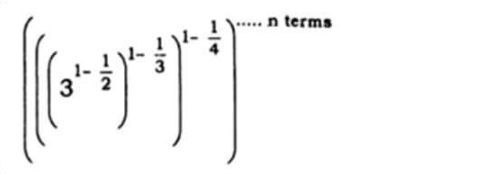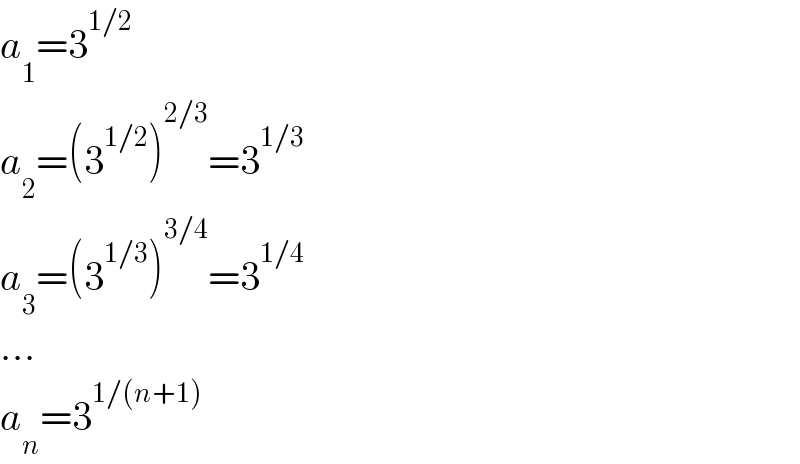Question Number 185624 by mathlove last updated on 24/Jan/23

Answered by MJS_new last updated on 24/Jan/23

$${a}_{\mathrm{1}} =\mathrm{3}^{\mathrm{1}/\mathrm{2}} \\ $$$${a}_{\mathrm{2}} =\left(\mathrm{3}^{\mathrm{1}/\mathrm{2}} \right)^{\mathrm{2}/\mathrm{3}} =\mathrm{3}^{\mathrm{1}/\mathrm{3}} \\ $$$${a}_{\mathrm{3}} =\left(\mathrm{3}^{\mathrm{1}/\mathrm{3}} \right)^{\mathrm{3}/\mathrm{4}} =\mathrm{3}^{\mathrm{1}/\mathrm{4}} \\ $$$$… \\ $$$${a}_{{n}} =\mathrm{3}^{\mathrm{1}/\left({n}+\mathrm{1}\right)} \\ $$
